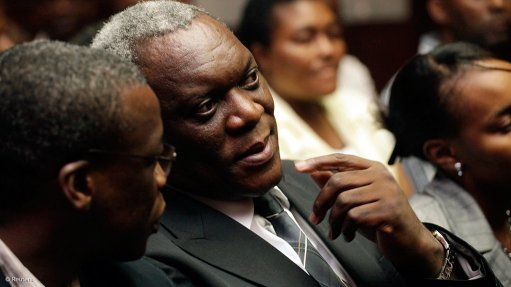
Telecommunications and Postal Services Minister Dr Siyabonga Cwel
Reliable connectivity and innovation are “no longer nice-to-haves, but essential tools for development” and African policymakers needed to create the “business case” to encourage private investment to support digital transformation, Telecommunications and Postal Services Minister Dr Siyabonga Cwele said on Tuesday.
Speaking to delegates attending GE Africa’s Digital Day in Sandton, Cwele lamented the growing “digital divide”, with 90% of the four-billion people who remain unconnected residing in developing regions, such as Africa.
It would cost $450-billion, he said, to connect the next 1.5-billion people without Internet access globally, with 3.5-billion likely to be connected by year-end. Such investment appeared “feasible” in the context of a digital economy that was expected to grow to $16-trillion over the coming four years.
“For us in Africa, it is important to develop a business case for this investment,” the Minister averred.
African policymakers should, therefore, embrace the fourth industrial revolution and seek to “minimise the social disruption” associated with the transition by prioritising investments in infrastructure, skills and open Internet, as well as the development of relevant content and affordable services.
He was speaking against a backdrop of ongoing domestic complaints about the cost and reliability of data services – an issue that was due to come under intense scrutiny during two days of public hearings in Parliament.
While much of the frustration is currently being directed towards telecommunications service providers, government policy inaction has also been highlighted as a problem, particularly delays in making additional spectrum available for broadband.
The Minister is currently in a legal dispute with the Independent Communications Authority of South Africa (Icasa) over the regulator’s decision to invite bids for radio frequency spectrum in the 700 MHz, 800 MHz and 2 600 MHz bands.
All Cwele would say was that he was confident data costs would decline as innovation, public pressure and competition increased, noting that he had issued a policy direction to Icasa in March for it to study the level of competition in the sector.
Cwele called for collaboration, acknowledging that governments were not equipped to address the complex issues arising from digital transformation. He argued, though, that Africa’s challenges could become “huge opportunities for innovation”.
“We need more collaboration to ensure that, as we put in place softer regulations, you [as business] put down harder cash.”